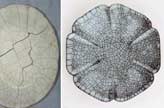From Chinese Media
Chinese shops ordered to write signs in Japanese
Updated: 2011-08-03 17:50
By Yan Weijue (chinadaily.com.cn)
Shop owners in Northeast China's Fangzheng county have been ordered to use Chinese-Japanese bilingual store signs or they will not be granted a business license, Nanfang Daily reported.
The local license body confirmed the new rule in a telephone interview with the newspaper on Monday. But the worker with the industrial and commercial bureau refused to elaborate on the ruling saying the local government and construction commission was responsible.
Calls to the government and construction commission went unanswered though.
Located in the east of Harbin in Northeast China's Harbin province, Fangzhen county boasts having more than 38,000 Chinese overseas, among who 35,000 are in Japan, says the newspaper, citing stats from a survey report by the city's United Front department in 2009.
Fangzheng has been showing a Japan friendly gesture for some time. Another report by the local government in 2006 said it was going to build up into an overseas Chinese hometown, where signs hanging over shops and on the roadside for commercial use will written in both Chinese and Japanese.
The county finds itself in the center of storm as netizens have been infuriated by its string of friendly efforts to Japan, including the most notorious one in July when it spent 700,000 yuan ($108,780) on building a wailing wall with lists of approximately 5,000 Japanese migrants who died on the county outskirts due to hunger and coldness in 1945 after the Japanese army was defeated in the War of Resistance against Japanese Aggression (1937-1945).
A deputy county chief said during an interview with the Southern Metropolis Daily on July 31 that the wailing war showed the humanitarianism of Chinese people and importance of world peace. He also denied it was for luring investments from Japan.

Specials

Space race
Homebuyers are learning the hard facts of supply and demand: too many cars and too few parking spaces.

Micro blogs popular
In the aftermath of the train crash, more than 20 million micro-bloggers demonstrated power.

Ancient plate broken
An ancient porcelain plate that was accidentally destroyed was an invaluable part of the Palace Museum's collection but not the best piece of its type.